What Do Parrots Eat? A Comprehensive Guide in 2024
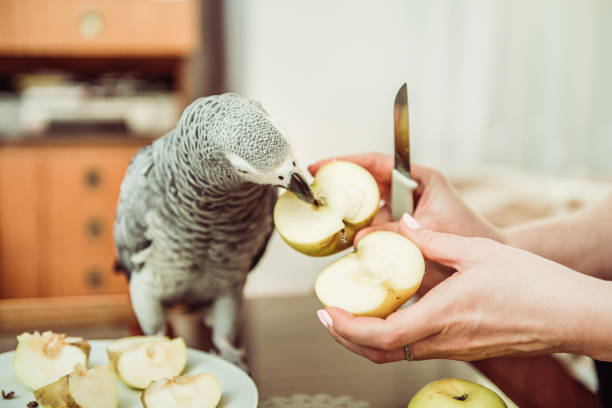
What Do Parrots Eat? Ensuring your parrot’s diet is diverse and nutritious is essential for their health and well-being. Parrots are omnivores, meaning they eat a variety of foods, including fruits, vegetables, seeds, nuts, and even some insects. A balanced diet for a pet parrot typically consists of high-quality commercial pellet or seed mixes supplemented with fresh fruits and vegetables. It’s crucial to provide a wide range of foods to meet their nutritional needs and prevent boredom.
In addition to commercial mixes, offer your parrot a variety of fresh produce such as apples, carrots, leafy greens, and bell peppers. Avoid feeding them avocado, chocolate, caffeine, alcohol, and excessively salty or sugary foods, as these can be toxic to birds. Providing clean, fresh water is also vital for hydration and overall health. Consulting with a veterinarian or avian specialist can help you tailor a diet plan suitable for your parrot’s species and individual needs.
What Do Parrots Eat?
Parrots are fascinating and colorful birds cherished for their intelligence, sociability, and charming personalities. Providing proper nutrition is essential for ensuring the health and well-being of these beloved avian companions. In this comprehensive guide, we’ll delve into the dietary needs of parrots, offering valuable insights into what they should eat for optimal health and vitality.
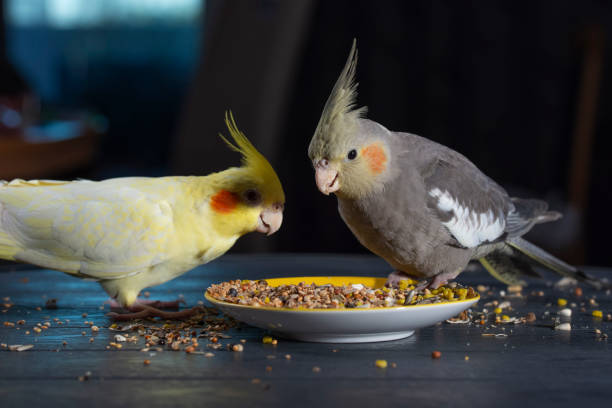
Understanding Parrot Nutrition
Parrots are omnivorous creatures, meaning they consume a diverse range of foods, including fruits, vegetables, seeds, nuts, and occasionally, insects. A balanced diet is crucial to meet their nutritional requirements and support their overall health. While commercial pellet or seed mixes serve as a staple in many parrot diets, it’s equally important to supplement with fresh, whole foods to provide essential vitamins, minerals, and antioxidants.
The Basics of a Parrot Diet
A well-rounded parrot diet typically consists of a high-quality commercial pellet or seed mix as the foundation. Look for products specifically formulated for parrots to ensure they receive the necessary nutrients. Additionally, fresh fruits and vegetables should constitute a significant portion of their daily intake. Offer a variety of options such as apples, bananas, oranges, carrots, broccoli, spinach, and bell peppers to promote dietary diversity and enrichment.
Avoid Toxic Foods
While many human foods are safe for parrots, some can be harmful or even toxic to them. It’s essential to avoid feeding your parrot foods such as avocado, chocolate, caffeine, alcohol, onions, garlic, and excessively salty or sugary treats. These items can cause digestive issues, toxicity, or other health problems in parrots. Familiarize yourself with safe and unsafe foods to ensure the well-being of your feathered friend.
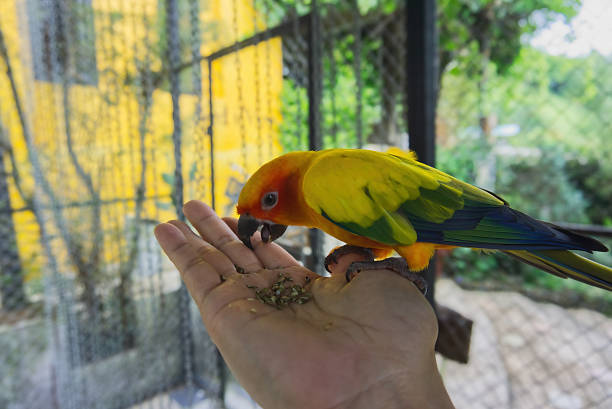
Supplementing with Healthy Treats
In addition to their regular diet, parrots enjoy occasional treats as rewards or for enrichment. Offer small portions of healthy treats such as nuts (in moderation), whole grains, cooked pasta or rice, and natural yogurt. These treats should complement their primary diet and not exceed more than 10% of their total daily intake. Avoid offering sugary or fatty treats that provide little nutritional value and can lead to obesity or other health issues.
Hydration
Proper hydration is essential for parrot health, so always ensure fresh, clean water is readily available. Change the water in their bowl daily to prevent bacterial growth and encourage regular hydration. Some parrots enjoy bathing, which helps keep their feathers clean and healthy. Providing a shallow dish of water or misting them with a spray bottle can simulate natural bathing behavior and contribute to their well-being.
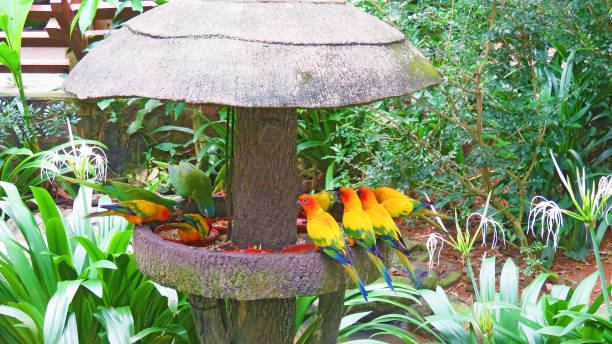
Consulting with a Veterinarian
If you’re uncertain about your parrot’s dietary needs or have concerns about their health, it’s advisable to consult with a veterinarian specializing in avian medicine. They can offer personalized recommendations based on your parrot’s species, age, health status, and individual preferences. Regular wellness check-ups are also essential for monitoring your parrot’s overall health and detecting any potential issues early on.
Conclusion
Understanding what parrots eat is essential for providing them with a balanced and nutritious diet that supports their health and vitality. By offering a variety of foods, avoiding toxic items, and ensuring proper hydration, you can help your feathered companion thrive in your care. Remember to consult with a veterinarian for personalized dietary recommendations and prioritize your parrot’s well-being above all else.
What do parrots eat in the wild?
In the wild, parrots have a varied diet that largely depends on their species, habitat, and seasonal availability of food. Generally, wild parrots consume a diverse range of foods, including fruits, seeds, nuts, berries, flowers, buds, insects, and even small vertebrates like lizards and small mammals.
Fruits and seeds are often primary components of a wild parrot’s diet, with different species favoring specific types based on their natural environment. They may feed on a variety of fruits such as figs, papayas, berries, and palm fruits, as well as seeds from grasses, trees, and shrubs.
In addition to fruits and seeds, wild parrots also forage for nuts, including almonds, Brazil nuts, and pine nuts, which provide essential fats and nutrients. Some species have specialized beaks adapted for cracking open tough nut shells to access the nutritious kernels inside.
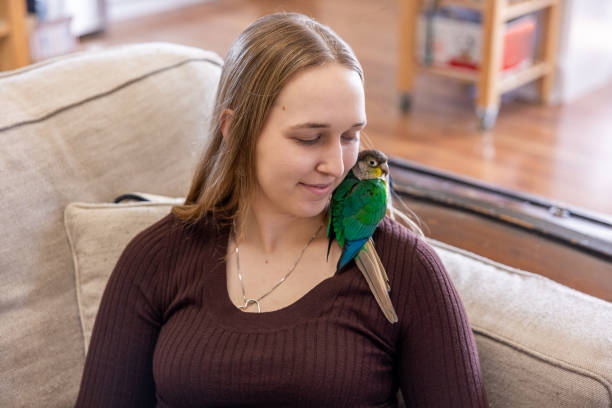
Insects and other small invertebrates are another important source of protein for many parrot species, especially during the breeding season when they require extra energy for nesting and raising young. Parrots may hunt for insects such as ants, termites, caterpillars, and beetles, supplementing their diet with valuable protein and nutrients.
Overall, the diet of wild parrots is diverse and varied, reflecting their adaptability to different environments and their ability to exploit a wide range of food sources for survival.
What do parrots eat minecraft?
In the game Minecraft, parrots have a specific diet that consists of seeds. Players can feed parrots seeds like wheat, melon, pumpkin, and beetroot found in Minecraft. To feed, hold seeds and right-click on the parrot. The parrot enters love mode if untamed or breeds if already tamed. Also, parrots can be attracted and tamed by seeds, becoming pets that perch on players’ shoulders.
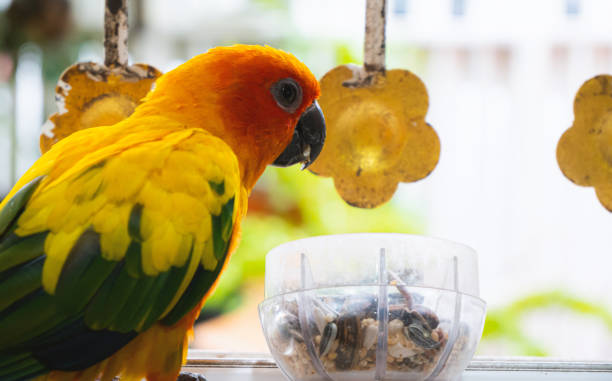
Which Nutrients to Include in Your Parrot’s Diet
Ensuring your parrot’s diet is balanced and nutritious is crucial for their health and well-being. Here are some essential nutrients to include:
Protein for Parrot’s Diet
Parrots require protein for muscle development and overall health. Good sources of protein include lean meats like chicken, turkey, and fish. You can also offer cooked eggs as a protein-rich treat for your parrot.
Vitamins and Minerals
Provide a variety of fresh fruits and vegetables to supply essential vitamins and minerals. Dark, leafy greens like kale and spinach are rich in vitamins A, C, and K, while fruits such as apples, oranges, and berries offer additional nutrients and antioxidants.
Calcium for Parrot’s Diet
Calcium is essential for maintaining strong bones and eggshell formation in breeding females. Offer calcium-rich foods like low-fat dairy products (such as yogurt and cheese), almonds, and fortified foods. Cuttlebones and mineral blocks are also excellent sources of calcium for parrots.
Healthy Fats
Incorporate healthy fats into your parrot’s diet to support skin and feather health. Offer foods like nuts (in moderation), seeds (such as sunflower and pumpkin seeds), and avocados. However, be cautious with fatty foods and feed them sparingly to prevent weight gain.
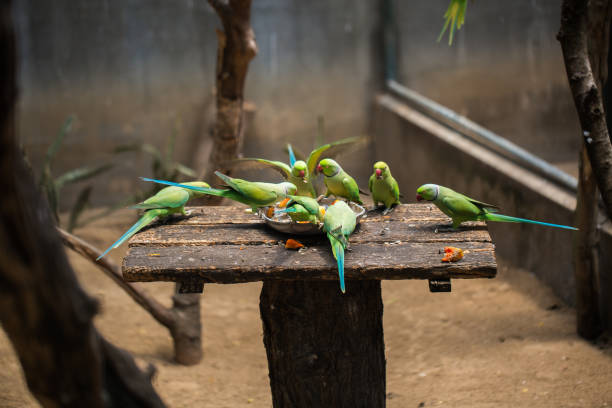
Carbohydrates
Carbohydrates provide energy for your parrot’s daily activities. Offer whole grains like brown rice, quinoa, and whole wheat bread as part of their diet. Avoid sugary or processed foods, as they offer little nutritional value and can lead to health issues.
Water for Parrot’s Diet
Ensure your parrot has access to clean, fresh water at all times. Hydration is essential for proper digestion, nutrient absorption, and overall health. Change the water daily to prevent bacterial growth and contamination.
By including these essential nutrients in your parrot’s diet, you can help promote their health, vitality, and longevity. It’s essential to offer a diverse range of foods to ensure they receive all the necessary nutrients for optimal well-being. Additionally, consult with a veterinarian or avian nutritionist for personalized dietary recommendations based on your parrot’s species, age, and health status.
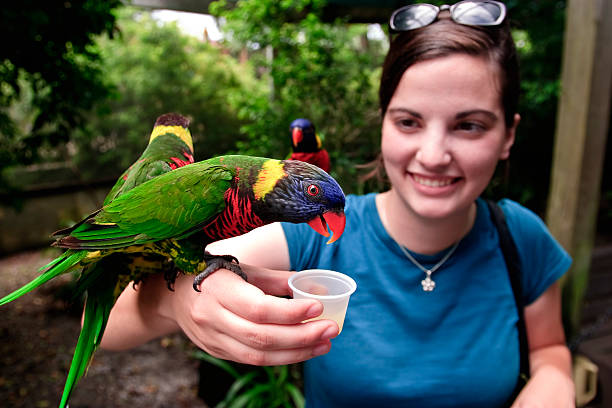
Frequently Asked Questions
Q: What do parrots eat in the wild?
In the wild, parrots eat a varied diet consisting of fruits, nuts, seeds, flowers, and insects. Their diet varies based on their species and habitat, but they often consume a wide range of plant matter supplemented with protein-rich insects.
What should I feed my pet parrot?
Pet parrots should be fed a balanced diet that includes a variety of fresh fruits, vegetables, seeds, nuts, and pellets formulated specifically for parrots. Offering a diverse range of foods ensures they receive all the essential nutrients necessary for their health and well-being.
Can parrots eat human food?
Parrots can safely consume many human foods, including fruits, vegetables, whole grains, and lean proteins. However, some foods, such as avocado, chocolate, caffeine, alcohol, and foods high in salt or sugar, should be avoided as they can be toxic to parrots.
How often should I feed my parrot?
Parrots should have access to food throughout the day and be fed small, frequent meals to mimic their natural feeding behaviors. Offer fresh food in the morning and evening, and remove any uneaten portions to prevent spoilage.
Do parrots need supplements?
In most cases, parrots do not require additional supplements if they are fed a balanced diet consisting of fresh fruits, vegetables, seeds, nuts, and pellets. However, certain parrot species or individuals with specific health conditions may benefit from supplements under the guidance of a veterinarian.
Can I give my parrot treats?
Yes, you can offer treats to your parrot in moderation as part of their diet. Healthy treat options include small pieces of fruit, vegetables, nuts, and seeds. Avoid offering sugary or fatty treats, and be mindful of portion sizes to prevent overindulgence.
How can I encourage my parrot to try new foods?
Introduce new foods gradually and offer them alongside familiar foods to encourage acceptance. You can also try presenting foods in different ways, such as chopped, sliced, or pureed, to see what your parrot prefers. Patience and persistence are key when introducing new foods to your parrot’s diet.
What should I do if my parrot refuses to eat?
If your parrot refuses to eat for an extended period or shows signs of illness, consult with a veterinarian immediately. Loss of appetite can be a sign of underlying health issues, so it’s essential to address any concerns promptly to ensure your parrot’s well-being.
Share this content:
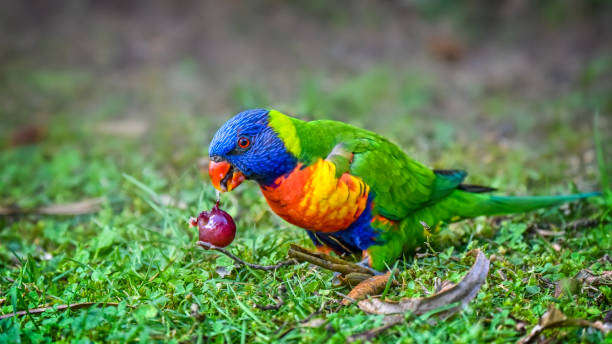
“I’m hooked on this blog! It has the perfect balance, just like my favorite latte and herbal tea. If you love bold flavors, don’t miss Bruce’s Spicy Tomato Relish!”